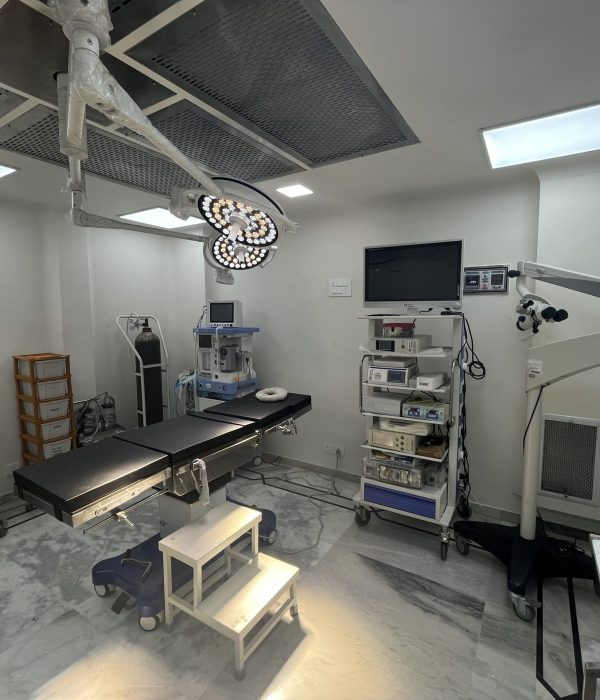- A/11, C P Nagar - 1, Ghatlodiya, Ahmedabad
- info@sattvahospital.in
- 097129 13728
Our Treatments
Balance disorders
Orthopaedic Treatment
ENT Treatment

Balance disorders
Comprehensive Diagnosis
Our team of experienced ENT specialists, led by Dr. Heli Patel, uses advanced diagnostic tools to accurately identify the underlying causes of vertigo. Whether it's due to inner ear problems, vestibular disorders, or other medical conditions, we provide a thorough evaluation to determine the most effective treatment plan.
Personalized Treatment Plans
At Sattva Hospital, we understand that each patient's experience with vertigo is unique. We offer personalized treatment plans tailored to your specific needs, which may include medication, physical therapy, and lifestyle modifications. Our goal is to alleviate your symptoms and prevent future episodes of vertigo.
State-of-the-Art Vertigo Clinic
Our dedicated vertigo clinic is equipped with the latest technology and tools to provide comprehensive care. We use advanced techniques such as vestibular rehabilitation therapy (VRT) to help improve balance and reduce dizziness. Our specialists work closely with you to monitor progress and adjust treatments as needed.
Holistic Approach
We believe in a holistic approach to vertigo treatment, addressing not just the symptoms but also the root causes. Our team collaborates with other healthcare professionals to ensure you receive well-rounded care that encompasses all aspects of your health.
Improved Quality of Life
Effective vertigo treatment can significantly enhance your quality of life by reducing dizziness, preventing falls, and allowing you to perform daily activities with confidence. At Sattva Hospital, we are committed to helping you achieve long-term relief and improved overall well-being.
Trust Sattva Hospital for Vertigo Care
If you are experiencing vertigo, trust the specialists at Sattva Hospital to provide expert care and effective treatment solutions. Schedule a consultation with us today to take the first step towards a balanced and dizziness-free life.
Vertigo
It’s not a fear of heights, though lots of people think it is. It’s not even a “disorder,” really. Vertigo is a symptom — a feeling that either you or the space around you is spinning. This might upset your balance or make you sick to your stomach. Conditions that affect the inner ear cause it most often, but those that have an impact on the brain can also do it.

Benign Paroxysmal Positional Vertigo (BPPV)
Tiny crystals inside your ear fall into one of the fluid-filled canals, often when you hit your head. Then, when you turn or stand, they confuse your brain and make you dizzy, nauseated, or briefly move your eyes back and forth without control. BPPV can last from a few seconds to a few minutes and usually goes away on its own. Your doctor may treat it with maneuvers that get the crystals to move out of your ear canals.
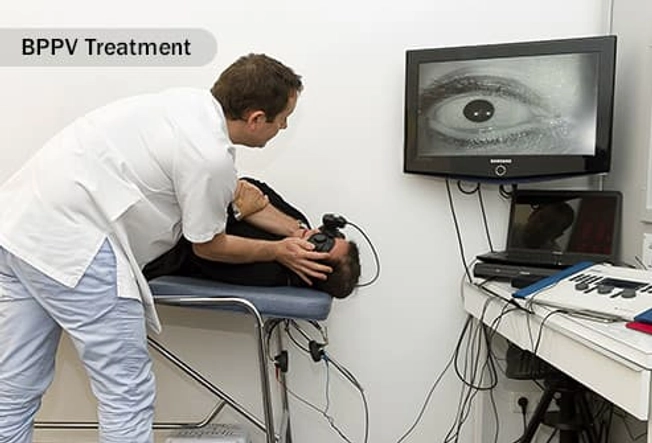
Labyrinthitis
A cold or flu virus, or sometimes bacteria, infect the maze of fluid-filled channels deep in your ear. This “labyrinth,” which normally helps you keep your balance, swells up, confuses your brain, and causes vertigo. You also might have fever, vomiting, hearing loss, and ringing in your ear (tinnitus). It usually clears up without treatment, but in rare cases, you may need antibiotics to knock out a bacterial infection.
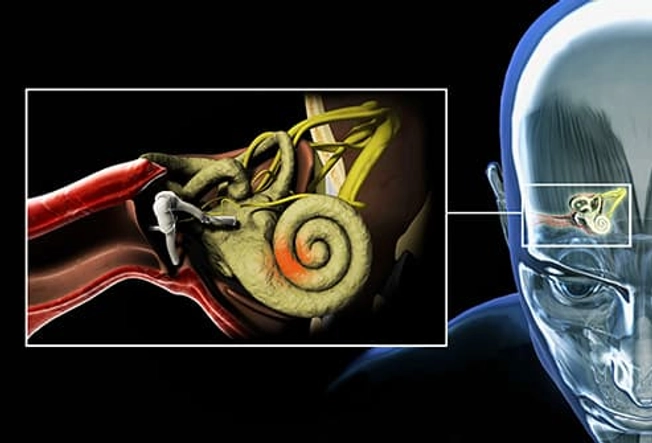
Vestibular Neuronitis
A virus causes sudden swelling of the vestibular nerve that connects your inner ear and the brain. This could make you dizzy, unsteady, and sick to your stomach, but doesn’t normally cause hearing loss or tinnitus. It can last from hours to a few days, but it may take you a month or so to get completely better. It usually clears up on its own, but you might need to rest in bed if your symptoms are bad.
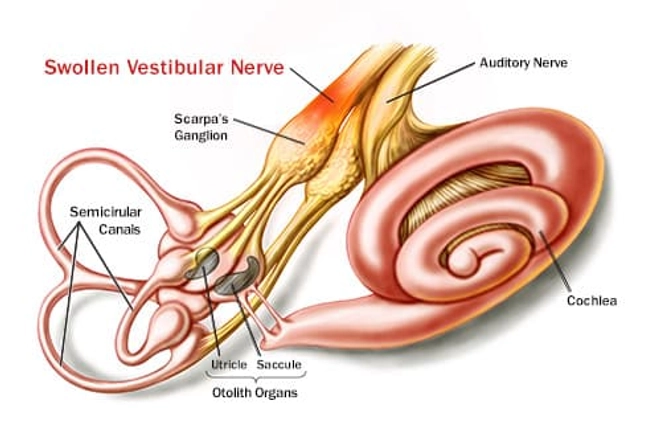
Meniere’s Disease
Though rare, it can cause serious vertigo that lasts from 20 minutes to several hours, often with nausea and vomiting. You might have tinnitus, hearing loss, and a feeling of pressure in your ear. Medicine can cut how many attacks you get and make you feel better when you have one. Diet changes and balance exercises could also help.

Medication
Your medicine could be the cause of your vertigo. Some drugs that can bring it on are antibiotics, antidepressants, antipsychotics, anticonvulsants, blood pressure meds, and anti-inflammatories. If you notice dizziness or balance issues, don’t stop taking your pills, but call your doctor right away. They might suggest something different that won’t cause problems.
Perilymph Fistula (PLF)
A blow to your head can tear a hole in the tissue that divides your air-filled middle ear from your fluid-filled inner ear. This can lead to balance problems. Your ear may ring, feel full, or you may get sensitive to loud noises. Changes in air pressure, like when you’re in an airplane, can make it worse. A week or 2 of bed rest gives the hole a chance to heal. Surgery may be an option if you still have problems after 6 months.
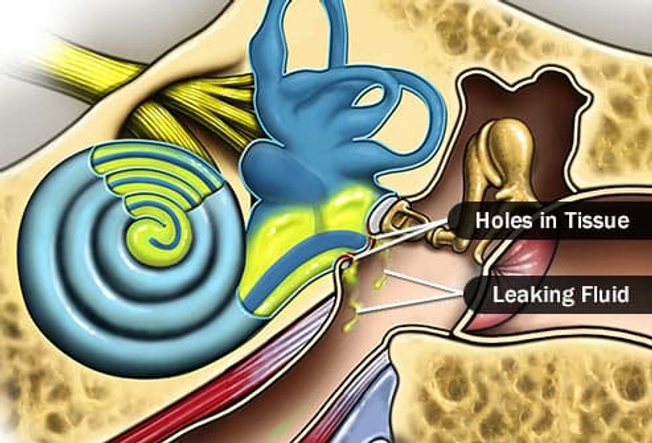
Vestibular Migraine
Food, stress, and other causes of migraine could inflame your vestibular nerve, which sometimes leads to vertigo. You may be dizzy, sick to your stomach, sensitive to light and sound, or have ringing in your ears. Strangely, you might not have an actual headache. You treat it with changes in diet, exercise, sleep, and other habits. Your doctor can add medicine and physical therapy if you need them.
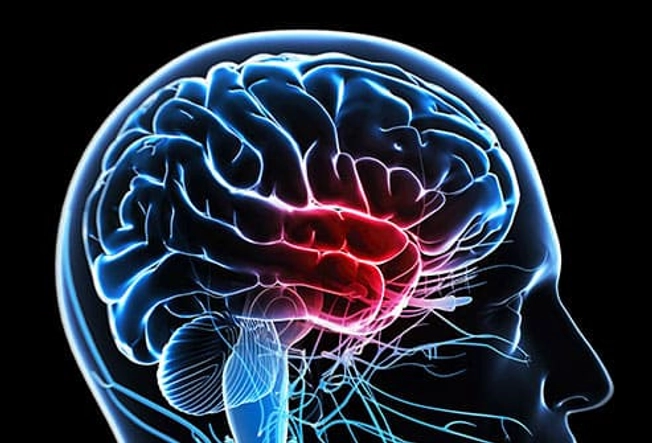
Head Injury
A hit to the head can disturb your balance in any number of ways. Besides the inner ear damage that leads to vertigo or perilymph fistula, it can also affect your vision, which helps keep you upright. It may also injure parts of your brain that control movement. Treatment depends on what causes the problem. Your doctor and physical therapist might be able to help.
Motion Sickness
Sometimes riding in a boat, car, train, or plane may make you nauseated and dizzy. It usually stops when you get off the vehicle. But if you have to stay on board, medicine might help. It’s also a good idea to:
- Focus on something far away.
- Keep your head still.
- Avoid strong smells, greasy food, caffeine, and alcohol.
- Eat light (plain crackers and water).
Mal de Debarquement Syndrome
When you step off a boat, you might feel for a moment as if the ground is moving like the ocean. Even professional sailors notice it. Now imagine it doesn’t go away. For weeks or years, you rock, bob, or sway — at least it feels that way — when you’re on solid land. Doctors suspect it’s because your brain doesn’t readjust when the motion of the journey ends. Most cases get better on their own. Still,sometimes symptoms can persist for weeks or even years and it can be managed with medications and vestibular rehabilitation.and exercise..
Neurological Conditions
Illnesses like multiple sclerosis, Parkinson’s disease, and cervical spondylosis slowly damage the way your nervous system talks to your brain, which can affect your balance. Physical therapy can help you manage the symptoms.
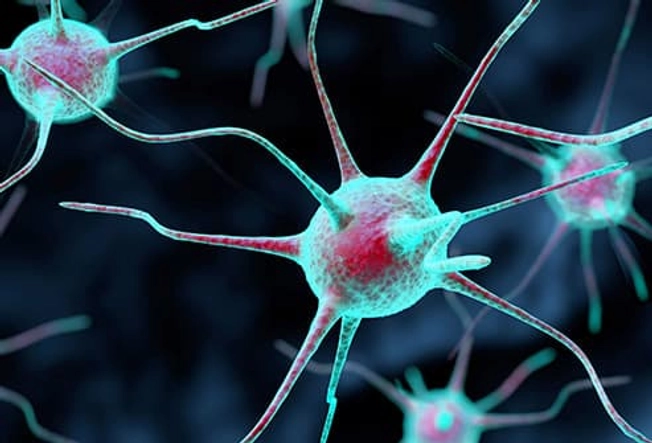
Ramsay Hunt Syndrome
You get this condition, and the balance problems that go with it, from the shingles virus that affects a face nerve. It causes a painful rash with fluid-filled blisters around one ear. Your face may be weak and hard to move on the same side. You might also have hearing loss, tinnitus, and vertigo. Call your doctor if you notice these symptoms. Quick treatment with antiviral drugs can help ease pain and keep it from getting worse.
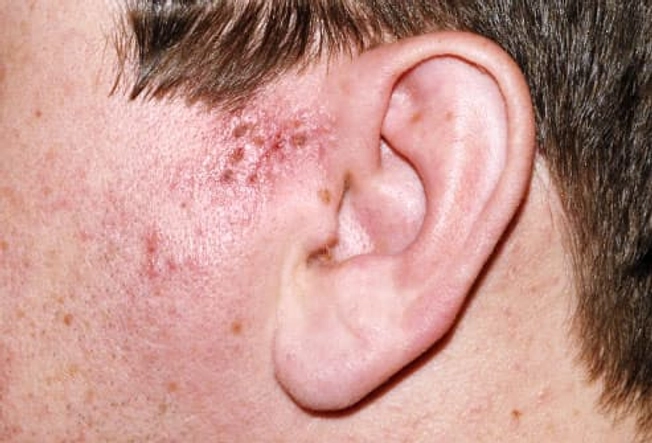

Vertigo
It's not a fear of heights, though lots of people think it is. It's not even a "disorder," really. Vertigo is a symptom -- a feeling that either you or the space around you is spinning. This might upset your balance or make you sick to your stomach. Conditions that affect the inner ear cause it most often, but those that have an impact on the brain can also do it.
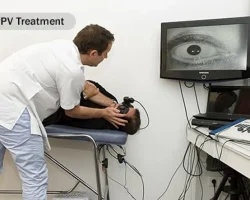
Benign Paroxysmal Positional Vertigo (BPPV)
Tiny crystals inside your ear fall into one of the fluid-filled canals, often when you hit your head. Then, when you turn or stand, they confuse your brain and make you dizzy, nauseated, or briefly move your eyes back and forth without control. BPPV can last from a few seconds to a few minutes and usually goes away on its own. Your doctor may treat it with maneuvers that get the crystals to move out of your ear canals.
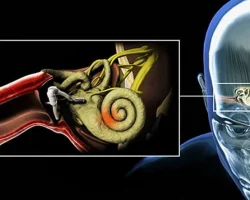
Labyrinthitis
A cold or flu virus, or sometimes bacteria, infect the maze of fluid-filled channels deep in your ear. This "labyrinth," which normally helps you keep your balance, swells up, confuses your brain, and causes vertigo. You also might have fever, vomiting, hearing loss, and ringing in your ear (tinnitus). It usually clears up without treatment, but in rare cases, you may need antibiotics to knock out a bacterial infection.

Vestibular Neuronitis
A virus causes sudden swelling of the vestibular nerve that connects your inner ear and the brain. This could make you dizzy, unsteady, and sick to your stomach, but doesn't normally cause hearing loss or tinnitus. It can last from hours to a few days, but it may take you a month or so to get completely better. It usually clears up on its own, but you might need to rest in bed if your symptoms are bad.

Meniere's Disease
Though rare, it can cause serious vertigo that lasts from 20 minutes to several hours, often with nausea and vomiting. You might have tinnitus, hearing loss, and a feeling of pressure in your ear. Medicine can cut how many attacks you get and make you feel better when you have one. Diet changes and balance exercises could also help.
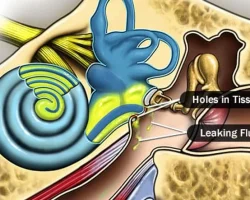
Perilymph Fistula (PLF)
A blow to your head can tear a hole in the tissue that divides your air-filled middle ear from your fluid-filled inner ear. This can lead to balance problems. Your ear may ring, feel full, or you may get sensitive to loud noises. Changes in air pressure, like when you're in an airplane, can make it worse. A week or 2 of bed rest gives the hole a chance to heal. Surgery may be an option if you still have problems after 6 months.
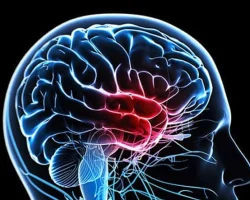
Vestibular Migraine
Food, stress, and other causes of migraine could inflame your vestibular nerve, which sometimes leads to vertigo. You may be dizzy, sick to your stomach, sensitive to light and sound, or have ringing in your ears. Strangely, you might not have an actual headache. You treat it with changes in diet, exercise, sleep, and other habits. Your doctor can add medicine and physical therapy if you need them.
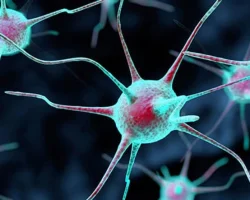
Neurological Conditions
Illnesses like multiple sclerosis, Parkinson's disease, and cervical spondylosis slowly damage the way your nervous system talks to your brain, which can affect your balance. Physical therapy can help you manage the symptoms.
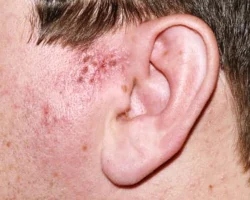
Ramsay Hunt Syndrome
You get this condition, and the balance problems that go with it, from the shingles virus that affects a face nerve. It causes a painful rash with fluid-filled blisters around one ear. Your face may be weak and hard to move on the same side. You might also have hearing loss, tinnitus, and vertigo. Call your doctor if you notice these symptoms. Quick treatment with antiviral drugs can help ease pain and keep it from getting worse.

Medication
Your medicine could be the cause of your vertigo. Some drugs that can bring it on are antibiotics, antidepressants, antipsychotics, anticonvulsants, blood pressure meds, and anti-inflammatories. If you notice dizziness or balance issues, don't stop taking your pills, but call your doctor right away. They might suggest something different that won't cause problems.

Head Injury
A hit to the head can disturb your balance in any number of ways. Besides the inner ear damage that leads to vertigo or perilymph fistula, it can also affect your vision, which helps keep you upright. It may also injure parts of your brain that control movement. Treatment depends on what causes the problem. Your doctor and physical therapist might be able to help.

Mal de Debarquement Syndrome
When you step off a boat, you might feel for a moment as if the ground is moving like the ocean. Even professional sailors notice it. Now imagine it doesn't go away. For weeks or years, you rock, bob, or sway -- at least it feels that way -- when you're on solid land. Doctors suspect it's because your brain doesn't readjust when the motion of the journey ends. Most cases get better on their own. Still,sometimes symptoms can persist for weeks or even years and it can be managed with medications and vestibular rehabilitation.and exercise..

Motion Sickness
Sometimes riding in a boat, car, train, or plane may make you nauseated and dizzy. It usually stops when you get off the vehicle. But if you have to stay on board, medicine might help. It's also a good idea to: Focus on something far away. Keep your head still. Avoid strong smells, greasy food, caffeine, and alcohol. Eat light (plain crackers and water).
ENT Treatment
Don’t let ENT issues affect your quality of life. Schedule a consultation with our expert ENT specialists at Sattva Hospital and discover personalized treatment options tailored to your needs. Book your appointment now and experience the highest standard of care for lasting relief and improved well-being!

Endoscopic sinus surgery
We perform effective sinus surgeries to relieve chronic sinusitis and other sinus-related issues, enhancing breathing and overall nasal health.
View Details
Allergy Solutions
Our allergy services provide comprehensive diagnosis and treatment for various allergic conditions, helping you manage symptoms and improve your quality of life.
View Details
Balance disorders
Specializing in the diagnosis and treatment of vertigo, our experts use advanced techniques to help you regain balance and stability.
View Details
Head and neck Tumor surgery
Our head and neck tumor services include expert diagnosis and treatment, utilizing the latest technologies to manage and treat tumors effectively.
View Details
Maxillofacial Trauma
We provide specialized care for maxillofacial trauma, addressing facial injuries with precision to restore function and appearance.
View Details
Rhinoplasty & Facial Rejuvenation
Our rhinoplasty and septoplasty services offer functional and cosmetic improvements to the nose, enhancing breathing and appearance.
View Details
Coblation assisted tonsil adenoid surgery
We perform tonsil and adenoid surgeries to treat chronic infections and breathing difficulties, ensuring better health and comfort for our patients.
View Details
Microear surgeries
We conduct a sleep study to assess snoring and sleep apnea, followed by coblation surgery to gently remove throat tissue and improve breathing.
View Details
Cochlear Implantation
In this procedure, we implant a device that directly stimulates the auditory nerve, helping patients with severe hearing loss to hear better.
View DetailsWhy Choose Sattva Hospital
At Sattva Orthopaedic and ENT Specialist Hospital, we are committed to providing exceptional medical care with cutting-edge technology and a patient-centered approach. Our highly skilled specialists, state-of-the-art facilities, and comprehensive treatment plans ensure the best possible outcomes for our patients. We prioritize comfort, safety, and satisfaction, making us the preferred choice for orthopaedic and ENT care.
- Advanced Facilities: Our Class 100 modular operation theatre features laminar airflow and American air HEPA filters, ensuring 99.97% pure air for a sterile surgical environment.
- Innovative Technology: Equipped with the latest BPL and Stryker systems, our operating rooms offer advanced monitoring, anesthesia, and surgical tools for precise and effective treatments.
- Comprehensive Amenities: From fully electric and 360-degree operation theatre tables to modular hospital beds and deluxe rooms with individual air conditioning, TVs, and refrigerators, we ensure maximum comfort for our patients.
- Specialized Equipment: Our facilities include a Leica microscope for ENT surgeries, an Allengers C-arm for trauma surgeries, and a fully equipped crash cart with emergency drugs.
- Dedicated Care Spaces: We provide specialized rooms for physiotherapy, trauma/emergency care, and audiometry, along with a vertigo clinic equipped with advanced diagnostic tools.
- Patient-Centered Environment: Our hospital is clean, well-connected, and equipped with amenities such as locker facilities and access to nearby food options, ensuring a comfortable stay for patients and their families.
